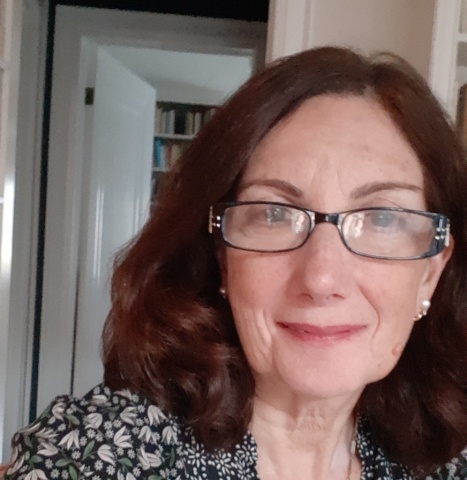
My professional experience provided a leg up as I navigated the mental health care system to get support for my son. To some extent, it even helped mitigate the challenges we faced. But even my insider knowledge of the system could not erase long waiting times, inadequate services, stigma, victim-blaming, isolation, fear, and anger we experienced as a family.
Does insider knowledge of the healthcare system help when you’re trying to access mental health services for a loved one?
As a graduate student in community health, one of my passions was improving access to healthcare services for underserviced populations. Little did I know that my passions would intersect with my personal life in a very profound way.
After my husband and I adopted our son from Chile, I found myself struggling to access services as he suffered from severe mental illness. At the time, I thought my training in community health and knowledge of the system would at least help me navigate the system to some degree and find support for our son.
Unfortunately, it wasn’t that easy. But let me take you back twenty-eight years:
His face is staring up at me with beautiful big brown eyes, long eyelashes and a strong will at barely three months old. He won’t settle, he won’t sleep through the night, and he cries uncontrollably when one of us puts him down. Just like any new parents, we’re nervous and trying to be patient. It could be a fever, or it could be our inexperience. Maybe it’s because we’re speaking English and he’s used to Spanish.
Many months go by. Our son is now a toddler who throws violent tantrums, 10 to 12 times a day. We book an appointment to see a child psychologist. She recommends we try some parenting techniques. We apply the techniques to no avail. The tantrums continue.
And so begins the history taking, the reporting, the testing, the loneliness and the frustration. “Two years of intensive therapy and we can fix him,” says the first psychologist. “Well it might take three years of therapy,” says the next one. “The entire family needs to be involved, including your two-year old daughter,” says the third one.
The situation at home deteriorates. We are scared to invite people to our house because he might become violent. Our circle of friends narrows because we don’t have the energy to stand on guard. He is rough with his sister, hits my husband and me, and punches holes in walls. He wails and screams when he doesn’t get what he wants. We are walking on eggshells.
Over the years we see several psychiatrists. He is tested and re-tested. He is diagnosed with a learning disability and oppositional defiance disorder, anxiety disorder, poor impulse control, attention deficit disorder, and possible fetal alcohol effects. He is prescribed Ritalin. Wellbutrin, and then Risperidone (a powerful antipsychotic), are added to the mix.
At times I lock myself in my room and lie on the floor crying. Sometimes, I feel as if I’m down a well and can’t get up. I continue to work and in my good moments marvel at my strength and courage to keep everything together.
We seek help, get few returns, and press on. This pattern continues until he reaches twelve. He’s getting bigger and the violence escalates.
One night he pushes me down the stairs. Another night he won’t get off the computer and go to bed. He picks up a pair of roller blades and smashes them into the wall. Then he points a knife at me. In desperation, I call a children’s mental health treatment centre. They will accept him but first we have to call the police and lay charges. That’s the only route in. It’s the toughest decision we’ve ever made. Twelve years of violence has worn us down and he needs more help than we can give him. We call the police and they escort him to jail at twelve years old – a living nightmare.
After a night in jail he is released to the treatment centre. But he can only stay there for six weeks. In order to get a long-term bed we have to sign a temporary care agreement with a children’s aid society. This means that any decisions related to his care have to be made jointly with the organization. As adoptive parents, this was one of the most difficult decisions we’ve made.
I don’t have space to elaborate on his various residential placements; the abuse he experienced in one of them; how we rented an apartment for him at age 17 because we didn’t feel safe having him in our home; and his brushes with the law.
I can however report that after a couple of years in a residential setting, support from family, and very hard work advocating for him, he now lives independently and holds down a job. Although he still requires more emotional and financial support than the average 28-year-old does, he no longer saps my energy.
My professional experience provided a leg up as I navigated the mental health care system to get support for my son. To some extent, it even helped mitigate the challenges we faced. But even my insider knowledge of the system could not erase long waiting times, inadequate services, stigma, victim-blaming, isolation, fear, and anger we experienced as a family.
Imagine then the challenges faced by families without someone on the inside. My lived experience tells me that we must work hard to ensure that all families have clear, simple and supportive pathways for accessing mental health services for their loved ones. We still have such a long way to go in making sure they aren’t trapped in the maze. However, with continued advocacy and work, we can help the system improve, and help youth and their families find support.
We welcome relevant and respectful comments. Off-topic comments and spam will be removed.